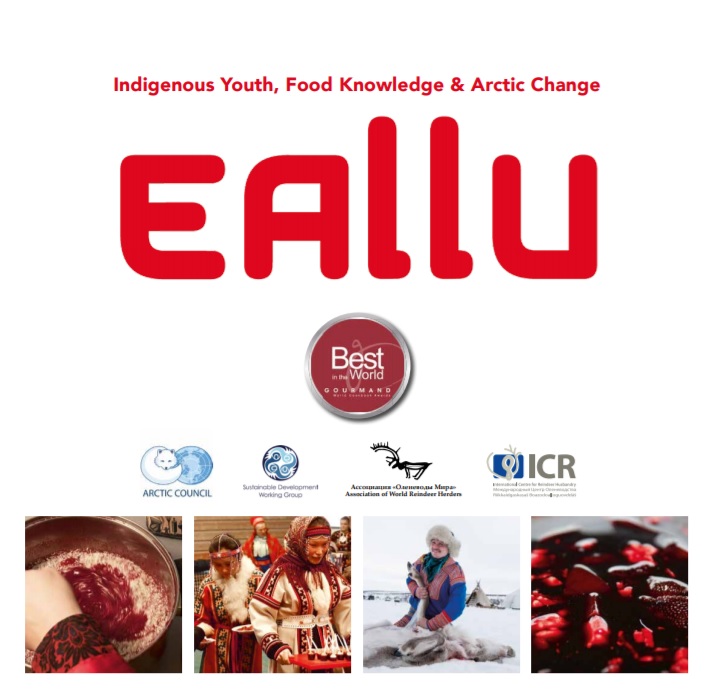Source: Arctic Council web-site
 Arctic youth is not just the future but also the present. A slogan that Indigenous youth leaders coined when they got together for the first Arctic Leaders’ Youth Summit in Rovaniemi, Finland, in November 2019. They called for a more active involvement in the issues that affect them – now and in future – and in doing so they joined a global movement of young people that are speaking up for their rights as they see their future imperiled by climate change.
Arctic youth is not just the future but also the present. A slogan that Indigenous youth leaders coined when they got together for the first Arctic Leaders’ Youth Summit in Rovaniemi, Finland, in November 2019. They called for a more active involvement in the issues that affect them – now and in future – and in doing so they joined a global movement of young people that are speaking up for their rights as they see their future imperiled by climate change.
Over the years, the Arctic Council has stepped up its efforts to engage youth. Working Groups such as the Conservation of Arctic Flora and Fauna (CAFF) and the Sustainable Development Working Group (SDWG) have been forerunners in not just looking at how youth is affected by a changing Arctic but in actively involving them in their projects.
And now the Arctic Council is taking its effort to involve youth to the next level. At the most recent Senior Arctic Officials’ plenary meeting in Hveragerði, Iceland, the Chair of the Senior Arctic Officials, Ambassador Einar Gunnarsson, invited the Chairs of CAFF and SDWG as well as a representative of the Arctic Youth Network (AYN) to share their ongoing efforts to engage young people and comment on how meaningful youth involvement could be ensured in future.
“Youth has been important to the Sustainable Development Working Group for a long time. We have been working on issues related to youth since the beginning, because you can’t look at issues in the Arctic without looking at young people. It’s such an integral part of what we do. An important shift that needs to happen is how we work with youth rather than just to talk about youth.”, says Jennifer Spence, Executive Secretary of SDWG.
One of the best examples for youth engagement in SDWG is the project EALLU – Arctic Indigenous Youth, Climate Change and Food Culture. EALLU is focused on and led by young Indigenous reindeer herders. “The project has been going on for a while, but what is next, and what the project should focus on, is really driven by youth”, Jennifer explains. A showcase of meaningful and successful youth engagement – and one that has been honored with international awards.
CAFF has been involving youth in its activities since 2013. “Our objective is to enable young people to learn about Arctic issues, to share ideas, and to facilitate their participation in Arctic science and policy-related projects”, states Tom Barry, CAFF’s Executive Secretary.
CAFF’s initiatives address different age levels – from educational materials for 10-year old high-school students to a fellowship program for early career scientists in cooperation with the International Arctic Science Committee.
“We have also developed a strategy on how to engage youth: Inspiring Arctic voices through Youth. The goal of the strategy is to provide a space for younger people to gain experience of how Arctic states and the Council’s Indigenous Permanent Participants get together to discuss the challenges facing the Arctic. Part of that strategy is a youth exchange program, where we have facilitated – most recently – a youth exchange from Finland to the Aleutian Islands, and from Alaska to Finland. These exchanges have proven to be a very rewarding and fruitful. In fact, an exchange we held three years ago help to form an Arctic Youth Network”, Tom says.
The Arctic Youth Network (AYN) is a platform created and led by youth. It engages youth from across the Arctic and beyond to connect and collaborate on Arctic issues. It provides opportunities and capacity building resources. Now the network is looking into a closer cooperation with the Arctic Council.
“I think it’s critical for youth to be able to have an active dialogue with the Arctic Council on all levels, to bring their perspective to the discussion”, says Pétur Halldórsson, AYN’s co-founder. He brought some concrete suggestions for enhanced improvement to the plenary in Hveragerði. “There are many different youth projects going on, but we lack an oversight of connecting youth with all these projects and institutions. The Arctic Youth Network therefore proposed to establish a youth coordinator position within the Arctic Council Secretariat. This could drastically improve a meaningful engagement of youth in many ongoing and future initiatives”, Pétur explains.
The Senior Arctic Officials and Permanent Participants expressed their unanimous interest to foster sustainable and meaningful collaboration and engagement between youth and the Arctic Council. “I am very pleased with the strong support Arctic Council delegates showed for enhanced work on affairs related to youth, and engagement with the younger generation in the Arctic Council”, states Ambassador Einar Gunnarsson.
Arctic Council delegates will meet again in Akureyri in March 2020. Until then, the Icelandic Chairmanship aims to look more closely at the AYN’s proposals and to continue the discussion on how youth can be stronger represented in the Arctic Council.


